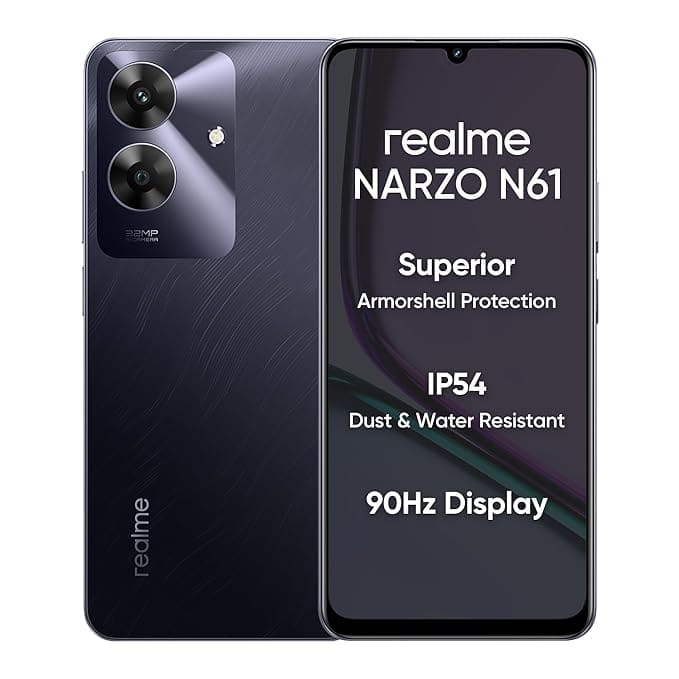English : Term 2 Unit 2 : Prose : Trip to Ooty
WARM UP
Work in groups. Look at the pictures. Describe them.
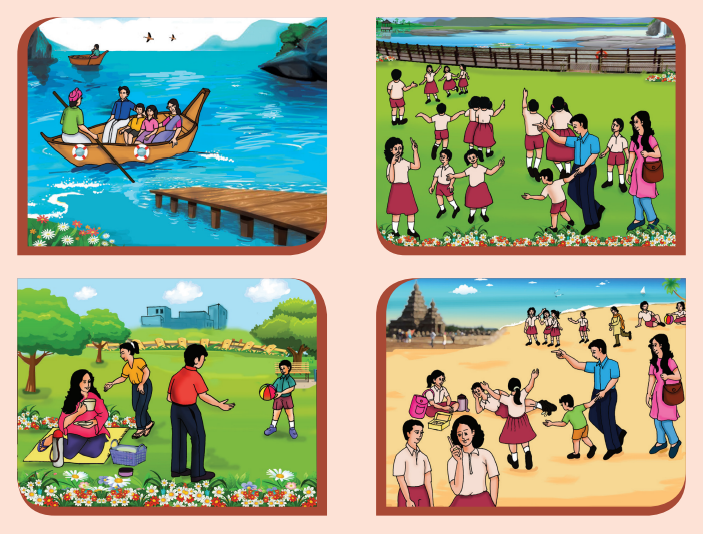
1. A family enjoys boat riding. There are two children. Their father and mother are with them. The boat man is rowing the boat. The boat has just started leaving the shore.
2. A group of school children have come on a picnic. They are in their uniforms. Both boys and girls are seen in the picture. They are walking about and playing.
3. It is a park. A family is seen there. The father and the son are playing with a ball. The mother pours tea into the cup. The daughter receives the tea cup from her mother.
4. It is a beach. There is a temple close to it. Children are seen there. Some are sitting or lying on the sand. A little boy walks with his parents holding the hand of his father.
Now, discuss the following questions in pairs and share your ideas with the class.
1. Where would you like to go for a picnic?
I would like to go to Kodaikanal for a picnic.
2. Would you like to go with your friends or parents?
I would like to go with my parents.
3. How do you prepare yourself for a picnic?
I would take extra clothes, towels, blankets, sweaters, soap and toothpaste etc. with me. I would also take my camera, binoculars, notebook and pen. I would put on my shoes and cap. I would also take some snacks with me.
4. Why do we arrange educational trip in schools?
Educational trips help us to know a lot about other people, their places and their customs. We visit important tourist spots. We learn the historical background of those places. We are happy and thrilled to see strange people and their places.
Section I
READING
Listen to your teacher reading the first part of the letter.
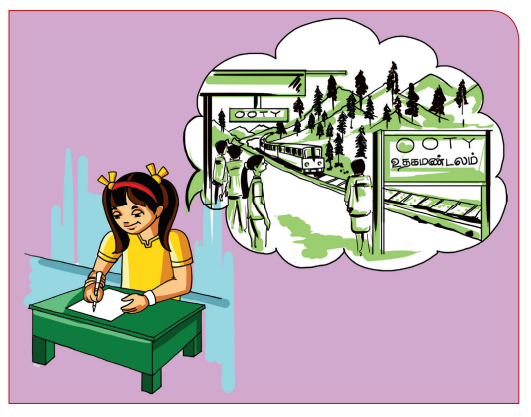
Read the following questions and answer them.
1. Where did the boys and girls go?
The boys and girls went to Ooty.
2. Why did Muthu say that he could walk along its side?
The train was moving slowly. So Muthu said that he could along its side.
3. Why did the girls snigger?
The teacher ordered Muthu to go back to his seat. At once Muthu sat down with a long face. So the girls sniggered.
GLOSSARY
Mesh /meʃ/ – Material made of a network of wire or thread
Swaying /ˈsweɪɪŋ/- Moving slowly or rhythmically
Snaking /ˈsneɪkɪŋ/– Moving like a snake
Sniggered /ˈsnɪgəd/- Laughed in a half suppressed way
Section II
Read this section of the letter on your own. Underline the sentences that tell you about the scenes outside. Describe it to the class.
Discuss and answer the following questions.
1. Why did the girl scream?
One of the monkeys tried to snatch a banana from the girl. So the girl screamed.
2. Why did Muthu and his friends step out of the train?
All of a sudden the train stopped with a thud. Muthu and his friends wanted to know why the train had stopped. So they stepped out of the train.
3. Describe the beauty of the blue mountain.
The mountains were purple-blue. They formed a lovely backdrop to the green fields and tea estates. The mountains were covered with misty clouds. They moved in and out of the forests. There was a bubbling stream with a small waterfall.
Paragraph Writing
Describe the scenery the children saw along the hillside.
The scene outside was beautiful. The mountains were purple-blue. They formed a lovely backdrop to the green fields and tea estates. The mountains were covered with misty clouds. They moved in and out of the forests. There was a bubbling stream with a small waterfall. Monkeys were racing along the tracks. Some of them had babies clinging to them. Everything was lovely and it looked like a dream sequence in a movie.
GLOSSARY
Clinging – Fitting closely to the body
Scream – Cry in a high pitch
Snatch – Quickly seize (someone) in a rude or eager way
Entranced – Filled (someone) with wonder and delight, holding their entire attention
Thud – Av dull sound, as that of a heavy object striking a solid surface
Section III
Read this section of the letter silently. Discuss with your partner and describe the incident.
Think and answer.
1. What made the trip a memorable one?
During the trip the group saw the wide, wind-swept tea estates, cloud covered mountains and the swaying trees. The murmur of streams and waterfall and the musical bird calls enchanted everyone. The pupils saw an elephant and its baby. All these made the trip a memorable one.
2. What does the phrase ‘presence of mind’ mean? Explain the phrase using Muthu’s action.
Presence of mind means ability to react quickly in a critical situation. During their trip to Ooty, a baby elephant sat on the railway track and refused to move. Muthu coaxed the elephant by holding a bunch of bananas and moving backwards. The baby elephant slowly moved towards the bananas and thus the track became clear. This incident shows that Muthu had the presence of mind.
3. What is the difference between this toy train and a normal train?
A toy train moves slowly but a normal train moves fast. A toy train is useful for tourists interested in sight seeing. But a normal train is used to cover long distances in a short time.
Paragraph Writing:
Describe the incident that showed Muthu’s presence of mind.
A baby elephant was sitting on the track. So the train was unable to move. The engine driver showed a bunch of bananas. The people made all kinds of sounds to coax the baby elephant. Muthu went up to the baby elephant with a bunch of bananas. As it moved to eat the bananas Muthu moved backwards. He kept doing this until the baby elephant was out of the track. Muthu was naughty and bold. But he had the presence of mind to tackle a critical situation.
Paragraph Writing 2:
A cute baby elephant was sitting on the track. The mother was nearby trumpeting loudly. The engine driver showed a bunch of bananas and tried to coax the baby off the track. But the baby elephant was too frightened to move. Now Muthu went up to the baby with a bunch of bananas. The baby elephant moved forward to eat it. now Muthu moved backwards. The baby elephant followed him and soot it was out of track. Many bunches of bananas were piled near the baby and the mother. As they were eating them everyone got into the train. The train pulled out of the place. It was an unforgettable incident for the children.
GLOSSARY
Trumpeting /ˈtrʌmpɪtɪŋ/ – Making a loud noise
Chugging /ˈʧʌgɪŋ/ – Move slowly making regular muffled sounds, as of an engine running slowly
Coax /kəʊks/ – Persuade (someone) gently to do something
Murmur /ˈmɜːmə/ – To make a low, continuous, indistinct sound; grumble
READ AND UNDERSTAND
A. Choose the most appropriate option.
1. Merlin was thrilled when the school arranged the trip because ___________ .
a. Geetha madam arranged the trip
b. She had heard about the beautiful journey by the toy train
c. She wanted to visit Ooty
d. She loved to go with her friends
2. The teacher asked the children to take their seat because ___________ .
a. the children had to take their breakfast
b. she wanted to check whether all the children were present
c. the train was about to move
d. the train was about to stop
3. Geetha madam couldn’t stop the children running out of the train because they _____
a. wanted to relax themselves
b. wanted to see what had happened
c. were getting bored sitting inside the train
d. wanted to enjoy the beauty of nature
4. The people were making all kinds of sounds because ___________ .
a. they wanted to move the baby elephant out of the track
b. they were afraid
c. they were confused
d. someone stopped the train
5. We do not really see the landscape from a normal train because the __________.
a. train travels along the city
b. train never passes through such places
c. windows are closed
d. train travels too fast
Answer: l) b 2) c 3) b 4) a 5) d
B. Recall Merlin’s memories and complete the story map.
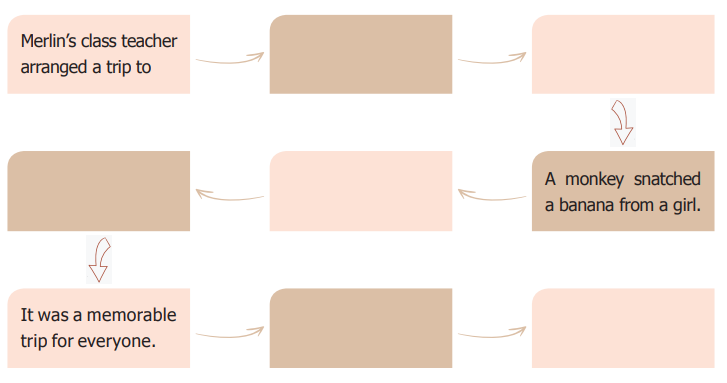
Answer:
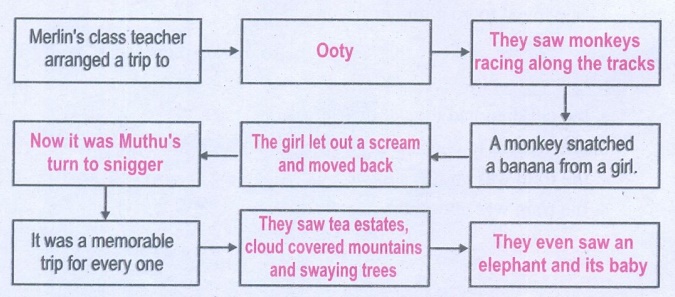
C. Narrate the story based on the story map.
Merlin’s class teacher arranged a trip to Ooty. They saw monkeys racing along the tracks. A monkey snatched a banana from a girl. The girl let out a scream and moved back. Now it was Muthu’s turn to snigger. It was a memorable trip for every one. They saw tea estates, cloud covered mountains and swaying trees. They even saw an elephant and its baby.
D. Write the story in your own words.
Merlin’s class teacher arranged a trip to Ooty. It was quite exciting. They saw monkeys racing along the tracks. A monkey tried to snatch a banana from a girl. She let out a scream. Muthu sniggered at her. All of a sudden the train stopped with a thud. Every one got off the train. They saw a baby elephant sitting on the track. Its mother was standing nearby and it was trumpeting. Muthu showed a bunch of bananas. The baby elephant moved forward to eat it. Now Muthu moved backwards. The baby elephant moved forward and soon it was away from the track. When the track was clear everyone got into the train and the train moved on. Muthu’s presence of mind helped them to continue their journey.
VOCABULARY
E. Complete the words by reading their meaning.
1. s_e_ta_u_ar – eye catching
2. _x_i_e_ – thrilled
3. d_l_c_ _ _s – tasty
4. s _re _ _ – shout
5. f_i_h_e_ _d – afraid
1. spectacular – eye catching
2. excited – thrilled
3. delicious – tasty
4. scream – shout
5. frightened – afraid
A syllable is a unit of sound in a word. Each unit consists of a vowel sound.
Example: The word ‘water’ has two syllables ‘wa’ and ‘ter’.
F. Now, try splitting each of these words into syllables.
Wonderful : won – der – fill
Behind : be – hind
Bananas : ba – na – nas
Excitement : ex – cite – ment
Snatch : snatch
Windows : win – dows
Thud : thud
Everyone : eve – ry – one
LISTENING
G. Listen to your teacher reading a passage on Udhagamandalam – the Queen of Hill Stations. Tick the appropriate answer.
Udhagamandalam –the Queen of Hill Stations
Udhagamandalam is located in the Western Ghats zone at an altitude of 2240 m. It is the headquarters of the Nilgiri District, where the two mountain ranges meet. Udhagamandalam, popularly called Ooty by the tourist, is the Queen of Hill Stations. Centuries ago this was also called as Oththai-Kal [single stone] Mandu [Mund is a name of Toda Village]. The British started calling it as Ootacamund. Coffee and Tea Plantations and trees like Conifers, Eucalyptus, Pine and Wattle dot the hill side in Udhagamandalam and its environs. Summer temperature is maximum of 25ºC and a minimum of 10ºC. During the winter it is a maximum of 21ºC and a minimum of 5ºC. This area was inhabited by the tribals called Toda long before anybody ventured into this region. Curiously enough, this slice of paradise remained unknown even during the periods of the great Southern Dynasties. It was the British who ventured into the region during early nineteenth century. In search of cooler climates development and modernization took place after their arrival. This was the Summer Capital of the Madras Presidency during the British Rule.
It is the pride of the Blue Hills and centre of attraction. This was formed by Mr.John Sullivan, the then Collector of Coimbatore in the year 1824. This is located in an area of 65 acres. Fishing was the major activity in this place. In the year 1973, Tourism Development Corporation, Government of Tamilnadu, on behalf of the Tourism Department took possession of this place for Boating activity, which provides another thrilling entertainment for the tourists.
1. Udhagamandalam is located in the Western Ghats zone at an altitude of ________.
a. 2045 m
b. 2240 m
c. 2234 m
d. 2040 m
2. Centuries ago Udhagamandalam was called ________.
a. Ooty
b. Otacamund
c. Oththai-Kal Mandu
d. Mund
3. The maximum summer temperature of Udhagamandalam is ________.
a. 10°c
b. 21°c
c. 25°c
d. 20°c
4. Udhagamandalam was inhibited by tribals called ________.
a. Toda
b. Irula
c. Mund
d. Britons
5. Ooty was the Summer Capital of the ________ during the British Rule.
a. British
b. Todas
c. Tourists
d. Madras Presidency
Answer: 1) 2040 m 2) Oththai-Kal Mandu 3) 25°C 4) Toda 5) Madras Presidency
SPEAKING
H. Travelling can help a person to understand and appreciate different places. Discuss in groups and talk about the places you have visited recently. Present your experiences to the class.
H. Look at the picture of a village festival carefully. Talk about the activities that are going on by using the hints given in the help box.
About the place and the people — what is happening: what do the children and the adults do? – kind of shops – performances
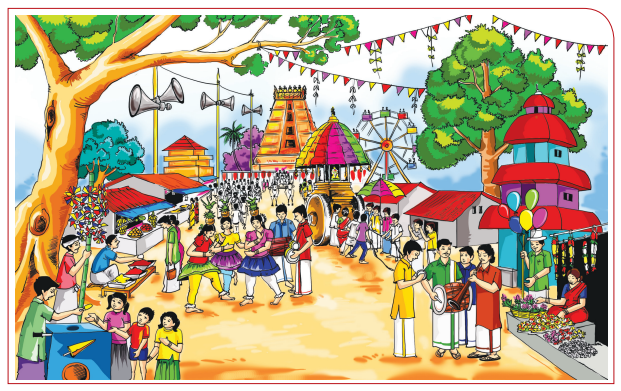
PICTO GRAMMAR
SIMPLE PRESENT TENSE
SIMPLE PRESENT TENSE
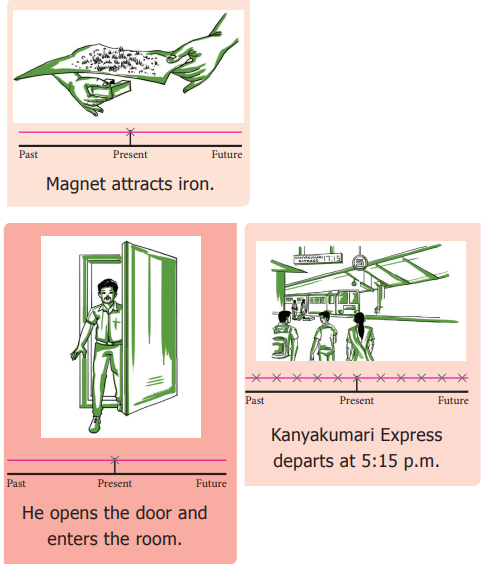
Simple Present Tense
a. Facts that exist at all times: Magnet attracts iron.
b. Permanent situation: I live in Chennai.
c. Expressing actions happening now: He opens the door and enters the room.
d. Habitual actions: Ravi goes to school at 8:30 a.m.
e. Future reference: Kanyakumari Express departs at 5:15 p.m.
Venkat will leave the class as soon as Anbu arrives.
PRESENT PROGRESSIVE TENSE
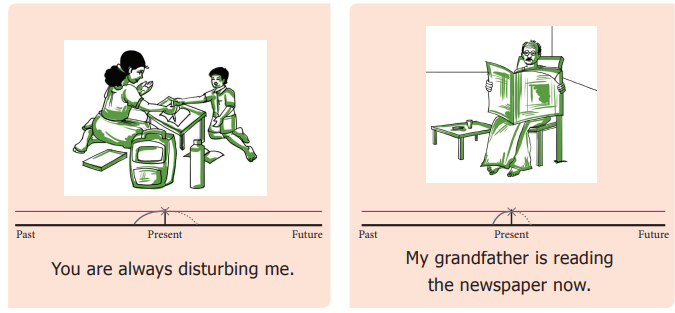
Present Progressive Tense
a. Unfinished Actions Now : My grandfather is reading the newspaper now.
b. Annoying Habits : You are always disturbing me.
c. Definite Future Plans with time word: The Prime Minister is visiting Chennai tomorrow.
SIMPLE PRESENT TENSE
We use the simple present tense in the following contexts.
1. To express facts that exist at all times
i) Wood floats on water.
ii) Water boils at 100°C.
iii) The sun rises in the east.
2. To denote a permanent situation
i) Abdul lives in Dubai.
ii) The Vaigai flows along Madurai.
iii) Snakes swallow frogs.
3. To express an action happening now
i) The doctor gets ready to go to the clinic.
ii) The athlete puts on his shoes.
iii) My father takes the newspaper and begins to read.
4. To express habitual actions
i) Latha goes to school at eight thirty.
ii) Every morning I drink a cup of coffee.
iii) My uncles comes home at 6 p.m.
5. To express future reference
i) The aeroplane takes off at 9 a.m.
ii) The Chief Minister opens the exhibition tomorrow.
iii) Our annual examination starts next week.
PRESENT PROGRESSIVE TENSE
1. To express unfinished actions happening now.
i) My mother is cooking now.
ii) Devaki is cleaning the vessels in the kitchen now.
iii) At present my friends are practising for the friendly match.
2. To denote annoying habits
i) You are always asking me for money.
ii) The little girl is always crying.
iii) The old man is always complaining about his sons.
3. To express definite future plans
i) The President is leaving for the States tomorrow.
ii) The Flood Relief Committee is coming here the day after tomorrow.
iii) They arc writing the final examination tomorrow.
SIMPLE PAST TENSE
1. To express completed action
i) It rained heavily yesterday.
ii) We went to a movie last Friday.
iii) Milton wrote ’Paradise Lost’.
2. To express actions in stories
i) Every one laughed at him.
ii) The captain came home after two months.
iii) Little Sarah opened the door and welcomed the guests.
PAST PROGRESSIVE TENSE
1. To indicate overlapping actions.
i) When my entered the kitchen the cat was drinking milk.
ii) You were watching TV when we came in.
iii) While he was going to school someone called him.
2. To indicate past habits
i) As children we were playing kabaddi.
ii) My mother was doing all household work when we were children.
iii) We were shopping regularly during our visit to Mumbai.
3. To emphasize length or duration
i) John was studying till 11.30 p.m. every night.
ii) The labourers were working hard from dawn to dusk.
iii) It was raining all through the night.
4. To recall the past
i) I could remember you were painting the door.
ii) We went to the new building. The men were carrying cement bags from the lorry.
iii) It was raining hard when the accident took place.
J. Read the sentences given below. Does the action happen every day or is it happening at this moment?
1. Deepa waters the plants every morning happens every day
2. A triangle has three sides. happens every day
3. Sandhya is writing a letter. is happening at this moment
4. The children are playing in the garden. is happening at this moment
5. I go to school regularly happens every day.
K. Read the sentences given below and circle the verbs appropriately.
1. Children like like/likes ice-creams.
2. Birds is flying is flying/are flying in the sky.
3. The doctor is treating is treating/ are treating the patient.
4. Our school commences is commencing/commences at 9.00 in the morning.
5. The florist sells sell/sells flowers on the street.
L.Vimala and Srinath have met after a long time. Read the conversation given below and complete the dialogue. Role play the situation with your own words.
Vimal: Hello Srinath, I haven’t seen you for a long time. Where are you rushing off?
Srinath: I am going to the hospital.
Vimala: Why are you going to hospital? Are you ill?
Srinath: No, I want to see my friend.
Vimala: Oh! What happened to him?
Srinat: He met with an accident.
Vimala: Are you free tomorrow?
Srinat: Yes, I am free.
Vimala: You are in a hurry, meet you tomorrow. Take care.
Srinath: Ok! Bye.
SIMPLE PAST TENSE

Simple Past Tense
a. Completed action: Merlin went to Ooty last week. Shakespeare wrote ‘The Tempest’.
b. Actions in stories: She boarded the train and looked for her friends.
PAST PROGRESSIVE TENSE

Past Progressive Tense
a. Overlapping action: When I entered the room, the telephone was ringing.
b. Past habits: Arun was eating a lot of junk food those days.
c. Emphasis of length or duration: Malathi was watering the plants all day.
d. Recalling the past: It was raining that day. I remember it well.
M. Sinduja is getting ready to sleep. She starts writing her diary. Help her complete it by using the verbs given in brackets.
(start eat have finish go reach)
1. I got up at 7’O clock.
2. I ate breakfast.
3. I went to office by car.
4. I started to work.
5. I had lunch at at 2 p.m.
6. I finished my task at 7 p.m.
7. I reached home at 8 p.m.
N. Read the sentences carefully and fill in the blanks with suitable tense form of the verbs given in brackets.
1. The doorbell rang, while I was doing (do) my homework.
2. We saw an elephant, while we were going (go) on a trip to Ooty.
3. Mary fell asleep while she was reading (read) a book.
4. The television was on but nobody was watching (watch) it.
5. Baskaran hurt his hand while he was cutting (cut) mangoes.
LANGUAGE CHECK POINT
×I have seen him yesterday.
✔ I saw him yesterday.
? The present perfect is a present tense. It can’t be used with adverbs of past time.
× I will call you when dinner will be ready.
✔ I will call you when dinner is ready.
? When the verb in the main clause is in the future tense, the verb in the subordinate clause should be in the present and not in the future.
× I am getting up every day at 6 a.m.
✔ I get up every day at 6 a.m.
? Habitual action should be in simple present tense.
× I am thinking it’s an interesting book.
✔ I think it’s an interesting book.
? When using ‘think’ to express an opinion, do not use the continuous form of the verb.
WRITING
O. Read the informal letter given below.
Sender’s address:
15, Beach Road
Kanyakumari
Date: 10th July 2018
Salutation: Dear Rosy,
Body of the letter:
How are you? I am fine. I couldn’t write earlier, because I was very busy.
I like my new home. It is a lovely house. I have a big bedroom looking over the garden. I helped Mummy paint the bedroom walls yesterday. We chose a pretty yellow.
A boy called Sundar lives next door. He likes animals not just like we do but even more. He says he is going to be a Vet when he grows up.
I am still thinking about being a writer. Do you want me to send the story I am writing. It is all about Ooty – the Queen of Hill Stations.
Write soon. I am looking forward to hear all your news.
Subscription: Yours lovingly
Signature : Mangai
Now write a reply to Mangai.

Sender’s Address
Date
Salutation
Body of the letter
Subscription
Signature
Write a reply to Mangai
A. Rosy
217, WB Road
Tiruchy
20th July 2018
Dear Mangai,
I am happy to hear from you after a long time. Indeed your letter was a pleasant surprise to me.
This year I have come to a school nearer to my house. I like it very much. The teachers here are kind and helpful. I have a good friend here. She is Lakshmi and she is my constant companion.
I am delighted to know that you write stories. Why don’t you send me some of your stories? I shall read them with my friend and write to you.
I am interested in writing poems in English. Recently I have written some poems about keeping the earth green. Very soon I’ll send you some of them.
Write soon. I look forward to meeting you during the holidays.
Yours lovingly
Rosy
CREATIVE WRITING
P. The Pooja holidays are about to start. Prasanth and Deepak are friends. Both their families have planned to go on a trip to Munnar. Develop a conversation on how they plan for their trip.
Plan:
* How many days to plan for the trip?
* What mode of transport to use?
* Which route to take?
* Which hotel to book for the stay?
* What are the tourist spots to be visited?
* What are the things to be packed for the trip?
Prasanth : Hey Deepak! Are you ready for the trip?
Deepak : Is it to Munnar? How long can we stay there?
Prasanth : Yes it’s to Munnar and we shall be staying there for three days.
Deepak : Shall we go by bus?
Prasanth : No, my father has arranged a van.
Deepak : Which route shall we take?
Prasanth :We shall go through Theni and Cumbum.
Deepak :Where are we going to stay?
Prasanth : Of course, in a hotel. At George Residency.
Deepak : What places can we see there?
Prasanth : We can visit the tea estates. We can enjoy boat ride at Mattupatti. Then we can go to places of interest in and around Munnar.
Deepak : I am happy to hear that we are going to stay in a hill station. What things should we bring with us?
Prasanth : You know, Munnar is a cool place. Don’t forget to bring your woollen sweater. We can use our cell phone to take photographs. It is good to take our shoes, muffler, torch light and first aid kit for an emergency.














